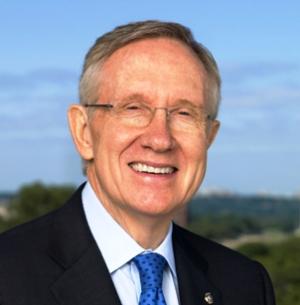In a Thursday interview with the Las Vegas Sun, Senate Majority Leader Harry Reid said towns in his home state should not be blocking medical marijuana dispensaries, but should instead be embracing medical marijuana. The Nevada Democrat, while not going as far as embracing marijuana legalization, also had some harsh words about prohibition's current implementation in the US.

Reid, a 74-year-old Mormon and former boxer and football player, is not known as a cutting edge drug reform type, but he said his opinion on marijuana had evolved over the years, and was informed by both hearing about people it had helped and by actually knowing some, including one young man suffering from severe kidney failure.
"He was so skinny and doing so poorly and somebody told him and his mom, you know, you should smoke some marijuana, because one of the side effects is… you get the munchies, you get extremely hungry," Reid said. "He tried it and sure enough, he was able to eat for the first time, he got hungry. So I thought, you know there might be some medical reasons for taking another look at this."
When the Sun asked Reid about whether Nevada should follow the path of Colorado and Washington and just legalize it, Reid demurred, although he did suggest that law enforcement had better things to do.
"I don't know about that. I just think that we need to look at the medical aspects of it. I guarantee you one thing," Reid said. "We waste a lot of time and law enforcement going after these guys that are smoking marijuana."
Reid's comments were music to the ears of the Drug Policy Alliance.
"Majority Leader Reid is right -- marijuana has medical value and too much time and law enforcement recourses are wasted arresting people for marijuana," said DPA national affairs director Bill Piper. "Twenty states have legalized marijuana for medical use and three-quarters of Americans support it. The 40 senators representing those states should follow Reid's lead and support marijuana law reform. It's time to change federal law to allow states to adopt their own marijuana policies without federal interference."
This work by StoptheDrugWar.org is licensed under Creative Commons Attribution-ShareAlike 4.0 International
Add new comment